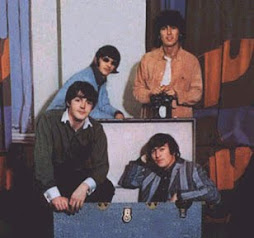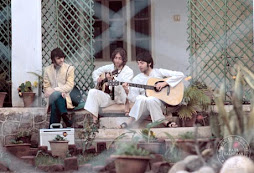Baby, You're a Rich Man
I read somewhere, it could have been in the Ray Coleman book "Lennon" that John had a version in which he sang about Brian Epstein and he said "baby you're a rich fag Jew." The song was about Brian Epstein and the refererence to "you keep all your money in a big brown bag" was a reference to how Brian would accept money from concert promoters in brown paper bags to avoid paying taxes, so it was this loose, undeclared cash. The Beatles had a nasty time in Manila and Brian and Mal Evans somehow forgot to take the brown paper bags into the plane with them or they were confiscated at the airport. They had been told to perform for Imelda Marcos for a royal performance and it was their day off and they never did that performance and got roughed up at the airport.
Brian was depressed after the touring stopped. The Beatles wanted to concentrate on songwriting and were using film and videotape to promote their hit records rather than through personal appearances. Brian hadn't foreseen this and thought of the records as a novelty to promote the touring rather than the other way around that the touring was done to market the records.
Ray Coleman implied that John's comments on the unreleased version of this song hurt Brian. But that would be far too simplistic.
Brian was a very complicated person but that was what John Lennon liked about him. John had often frequented the transvestite bars in Hamburg. He didn't care for the other managers that they had. Brian was just obsessed with the Beatles. They meant everything to Brian. If you know of people who are Beatlemaniacs and find themselves just lost in the hysteria of what they were at that time, Brian was one of those people and he was their manager.
Brian had to keep his homosexuality in the closet. He literally had to hide his love away. He would have trysts with boys here and there. The more famous he became, the more he was used and exploited. He enjoyed being roughed up and then to make matters worse, he would be swindled by his partners who threatened to report him to the press unless they were paid. That was his sex life. He never had a boyfriend. The only man that ever loved him as a person was John Lennon and he was married and a straight man who was just bi curious.
I think if the Beatles were a working band today, a guy like Brian could have had a life out in the open being gay and all of that. But then it wouldn't be the Beatles then, would it.
The fact that back then, being gay was illegal gave Brian an appeal to John Lennon.
John was always ironic, puns, so whatever he wrote should not be taken literally. John hated the beautiful people. He hated them and thought the beautiful people were boring and square. John like Brian because he was like the drag queens in Hamburg and he had this side of him that he liked getting roughed up and he had gambling addictions and so forth. So you can picture John nudging Brian as if to say "how does it feel to be one of them, eh?" and that's with the assumption that he wasn't one of them.























